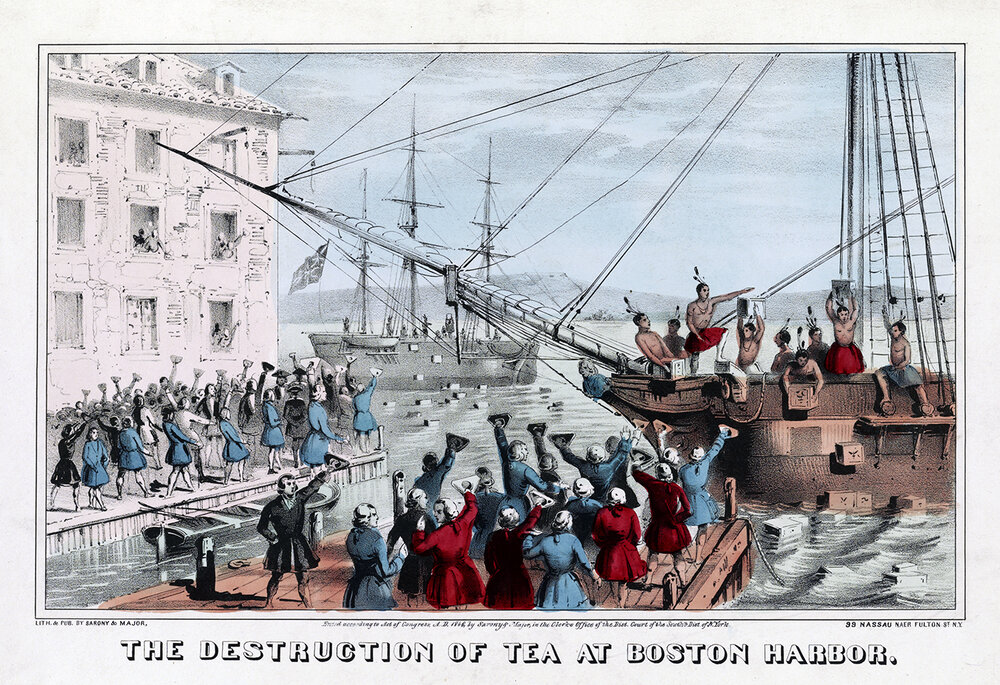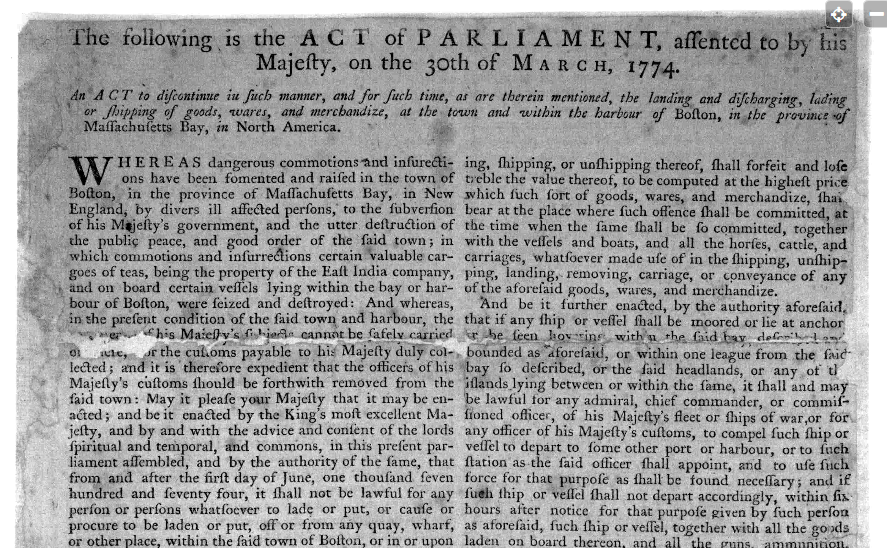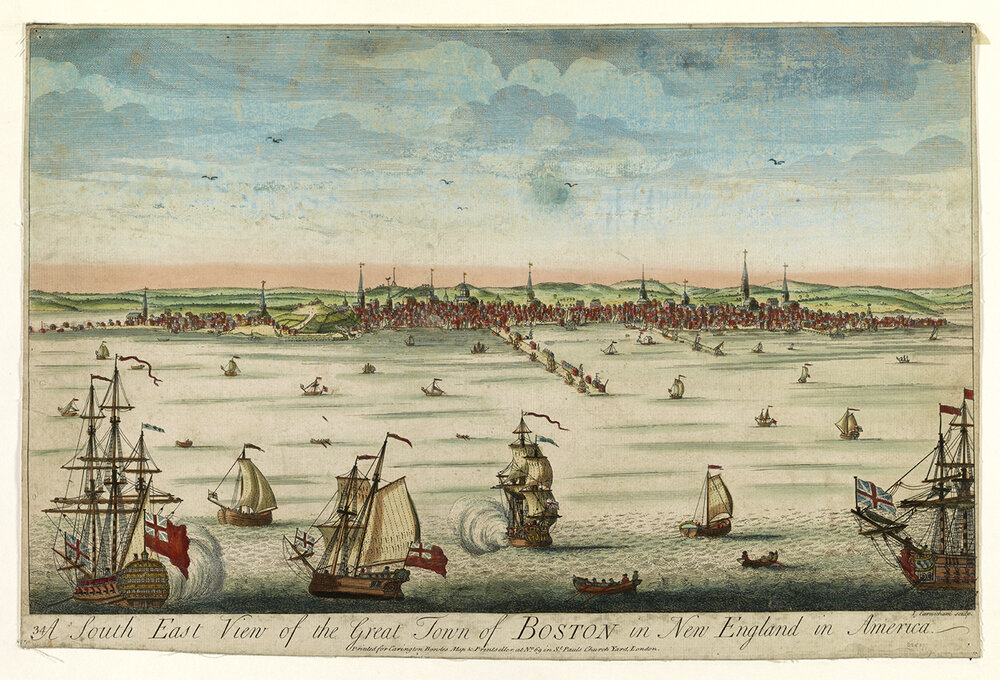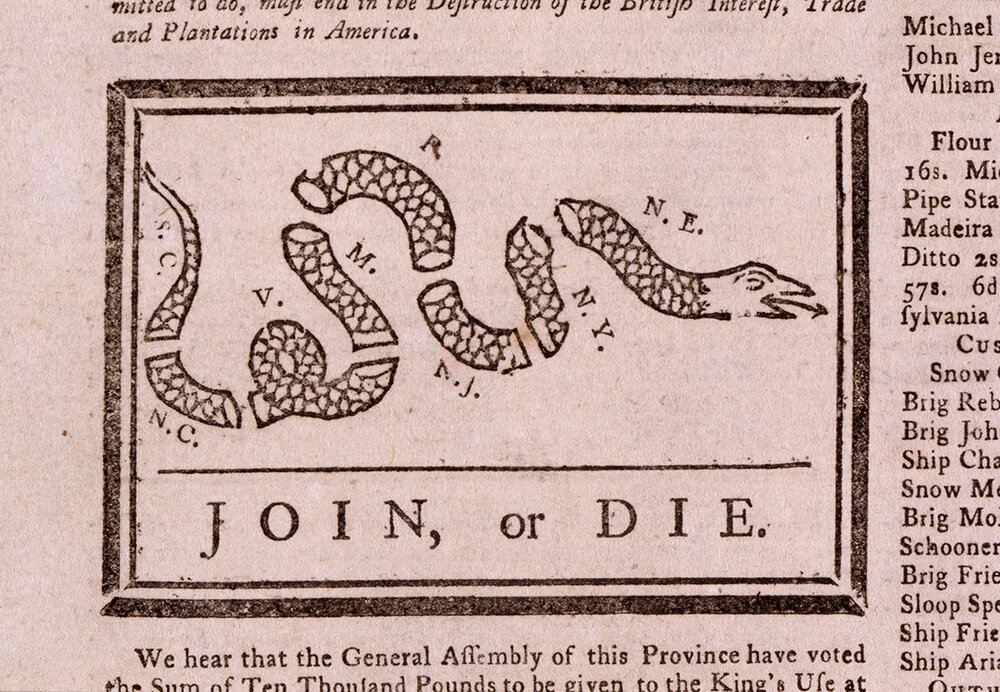States Helping States. It Has Happened Before.
Posted by Jeff Lantos on Apr 21st 2020
In response to the medical disaster unfolding in New York, the governors of Oregon, Washington and California sent ventilators. Robert Kraft, owner of the New England Patriots football team, sent 300,000 respiratory masks and crates of PPE. Doctors, nurses and EMTs from countless other states flew across the country and drove through the night to aid the ailing citizens of a sister state. Governor Cuomo of New York has promised to reciprocate as the virus moves westward and attacks other cities and states.
This cross-country kindness has a notable antecedent. In 1774, cities and towns from Quebec to the Caribbean came to the aid of their rebellious brethren in Boston. Why was Boston suffering? Because Parliament’s Port Act called for the British Navy to shut down and blockade Boston harbor as punishment for the Tea Party in December 1773.
Pay us back for the 340 chests of tea you threw into the water, said the British, and we’ll reopen the harbor. George Washington sent a letter urging the Bostonians to pay back the £10,000. So did Ben Franklin. At a town meeting, 123 Boston merchants and Loyalists made a push to pay, but they were outvoted by a great majority of workers. “Submit?” shouted an indignant ship’s carpenter. “No, it can never be time to become slaves! I have yet got some pork and meal, and when they are gone, I will eat clams. And after we have dug up all the clam banks . . . I will retreat to the woods. I am always sure of acorns.”
The bold talk and the defiant vote ushered in a year of innumerable hardships. “Our wharves are entirely deserted,” said a merchant, “not a topsail vessel to be seen there or in the harbor, save the ships of war.” Trade ceased. Warehouses went silent. Mariners, fishermen, boat-builders, rope-makers, sailmakers, riggers, porters and carpenters were suddenly jobless. These men made up a quarter of Boston’s population. Sure, there were clam banks and acorns, but how many could those feed, and for how long? Historian Henry Ward points out, “The British Ministry calculated that severe measures against one colony would not arouse hostility from others, given the well-known sectional rivalry among the northern, middle and southern colonies.” The Ministry miscalculated.
The Port Act had the opposite effect. Sentiment in the other colonies was expressed by a “A Friend to American Liberties,” who wrote in the Connecticut Currant that “there are thousands . . . which depend wholly on their daily work for their bread, and are now reduced to distress for want of employment, and are not able to support their families.” The question is, will we “see our brethren suffer . . . and not relieve them when it is in our power? The love of ourselves, the love of our country, and the love of GOD and religion calls for our assistance.” This response was echoed in letters and newspapers throughout the colonies. “United we stand – divided we fall,” trumpeted the New Hampshire Gazette of July 22, 1774. In town meetings from New Hampshire to Georgia, citizens voted on what should be sent to aid Boston. Cartloads of grain and herds of sheep and oxen were soon moving north from New York, Connecticut and Rhode Island. Boats from distant ports offloaded supplies in Salem and Marblehead where teamsters drove them south to Boston. Storage sheds along Boston’s wharves were soon piled high with rice, wheat, rye, corn, fish, firewood, potatoes and bottles of brandy. Sheep and oxen were herded onto Boston Common.
This heroic rescue effort succeeded despite the fact that there was no organizing authority, no central government. It was the odious British policies that helped unify the colonies just as today’s pandemic has helped to unify some of the worst hit states. The difference of course is that today we have a central government; we have a president. A national response was clearly called for in January 2020. And what did we get? Silence. Denial. Lies. “I take no responsibility,” said President Trump. As a result, we’ve been sent reeling back in time. Every state is now Boston. Every state needs help. With no national strategy, it’s fallen to governors, mayors, hospital administrators, doctors, nurses, epidemiologists, Navy captains, National Guardsmen and creative entrepreneurs to try to save us.
In 1776 the British army and navy were driven from Boston by the new Commander-in-Chief, General George Washington. In time he would ascend to the political pantheon. When the deadly viral enemy is finally driven from our midst, there will be no ascending. Instead there will be stacks of devastating after-action reports revealing a Commander-in-Chief utterly incapable of empathy, foresight or leadership.







